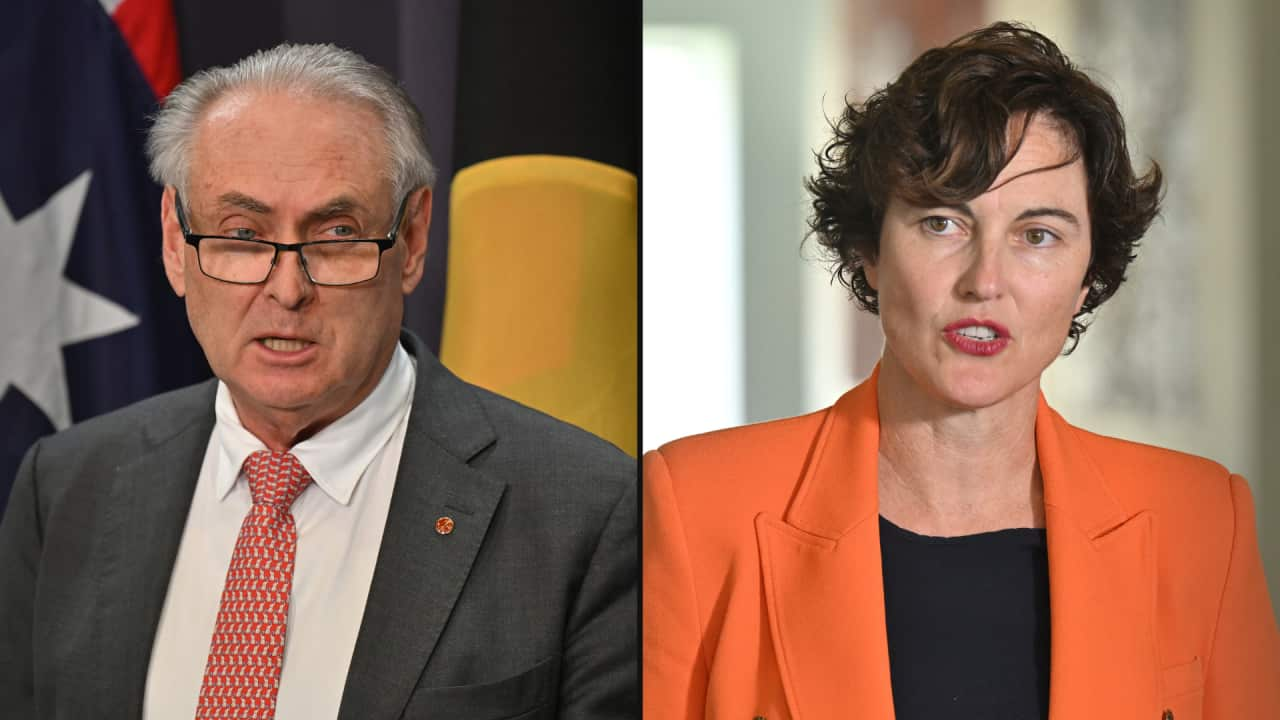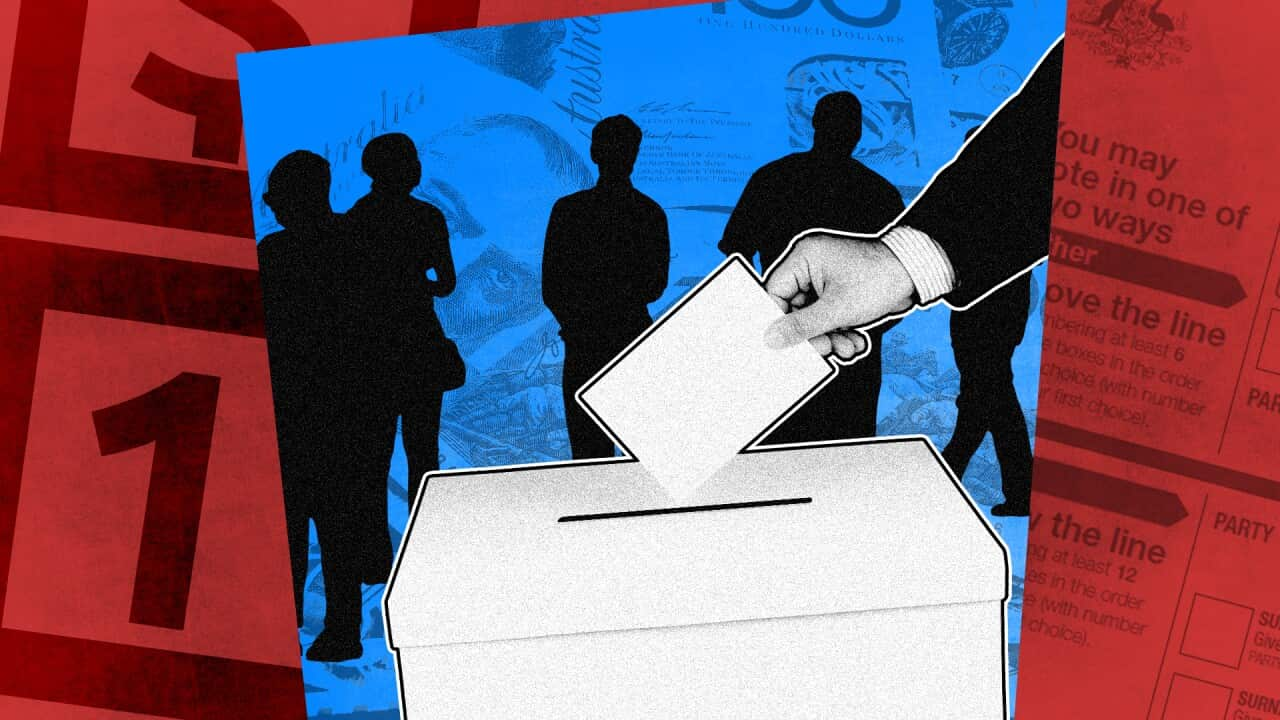Federal Labor has announced a plan to cap political donations and election spending, saying it will "strengthen our democracy".
The electoral reform bill, which is set to be introduced to federal parliament next week, has in-principle support from the Coalition.
But its announcement and the government's plan to push the proposed legislation through parliament before Christmas have been criticised by members of the crossbench, who argue it will limit the chances of independent, grassroots candidates entering politics.
One independent MP described it as "a desperate attempt … to rig the rules, squeeze out the competition, and protect their patch", while another said it was a "major party stitch-up".
What are the proposed changes?
A key part of the electoral reform bill is limiting persons to donating no more than $20,000 to a single political candidate each year.
Those donating to multiple candidates will have an annual cap of $600,000.
Special Minister of State Don Farrell said the government's proposed legislation would "stop the arms race of donation drives and endless fundraising".
"The Australian electoral system should not work on the basis that the only people who can be elected into parliament are people who are sponsored by billionaires," he told reporters in Adelaide on Friday.
"With these changes, it will not be the way the system works."
The bill would also set election spending limits at $800,000 per lower house candidate and $90 million for a political party's federal campaign. Candidates running for the Senate would have a $200,000 spending cap.
These limits would prevent the kind of campaign spending seen during the 2022 federal election, where several successful teal independents each raised more than $1 million each, and Clive Palmer's United Australia Party spent more than $120 million.
But Farrell denied the bill would entrench the power of the two major parties — or that it was designed to target people like Simon Holmes à Court, the businessman and political activist behind fundraising group Climate 200.
"We are not targeting individuals. We target the system that allows an uncapped amount of money to be spent on elections," he said.
"What these caps do is ensure that even an independent could not be outspent in an election setting."

Simon Holmes à Court is the businessman and political activist behind the fundraising group Climate 200. Source: AAP / Lukas Coch
They will need to be reported in near real-time, and the threshold for disclosure will drop from the current level of $16,900 to $1,000 — indexed every three years.
During elections, donations would need to be disclosed weekly, except in the last week of the campaign, when it would become a daily requirement.
Outside those times, donations would have to be reported monthly and would be published by the Australian Electoral Commission (AEC).
To help them comply with the disclosure requirements, political parties and independents would receive $30,000 per MP and $15,000 per senator in administrative funding.
They would also get a boost from taxpayers, with an increase in the public subsidy from $3.346 per eligible vote to $5.
Farrell rejected suggestions the bill was being rushed through, noting its introduction to parliament comes after two years of "committee inquiries, reports, recommendations, detailed drafting consideration, and consultation".
"None of what is in this bill comes as any surprise, I don't think, to anybody who has been paying attention to this issue," he said.
"We have not rushed it, in fact, we have done the opposite. We took our time to carefully consider and carefully consult with all political parties about these changes."
What has the reaction been?
Independent MP Kate Chaney said while transparency around political donations and spending was "long overdue", the proposed legislation was "a clear attempt to stamp out the competition".
"It will take time to analyse how this complicated package of donation caps, spending caps and increased public funding will work, but it appears this bill will lock in the major parties and lock out any new competitors," the member of the Joint Standing Committee on Electoral Matters said in a statement on Friday.
"Popularity of the major parties is at an all-time low, with one in three Australians voting for a minor party or independent at the last election. But instead of trying to earn back the trust of voters, this bill is a desperate attempt by the big parties to rig the rules, squeeze out the competition, and protect their patch."
Chaney, who was elected in 2022 to the Perth seat of Curtin, said the major parties were "running scared of the possibility of a bigger crossbench that will continue to hold them to account".
"While a new independent would have to comply with a $800,00 spending cap, it appears that each political party can spend $90 million, shifting that money around to support any member who is being threatened by a newcomer," she said.
Independent ACT senator David Pocock agreed that while electoral reform was "well overdue", any changes must "create a level playing field".
"I am deeply concerned that the legislation being introduced on Monday is a major party stitch-up that subverts parliamentary process and seeks to lock out more community independents," he said in a statement on Friday.
"The government has shared no detail of this reform with us since June. These are major reforms with far-reaching impacts, and the suggestion that they won't be subject to a Senate inquiry is damaging to our democracy."

Independent senator David Pocock said electoral reform was "long overdue", but any changes needed to "create a level playing field". Source: AAP / Mick Tsikas
"Power under the constitution is not meant for abuse or to suppress competition, as is being proposed," he said in a statement on Friday.
"This legislation is designed to destroy the fabric of society."
When will the changes come into effect?
The changes aren't a certainty yet — the proposed legislation still needs to pass parliament.
Labor is hopeful that can happen in the next fortnight.
If passed, the new rules wouldn't take effect until after the next federal election.












